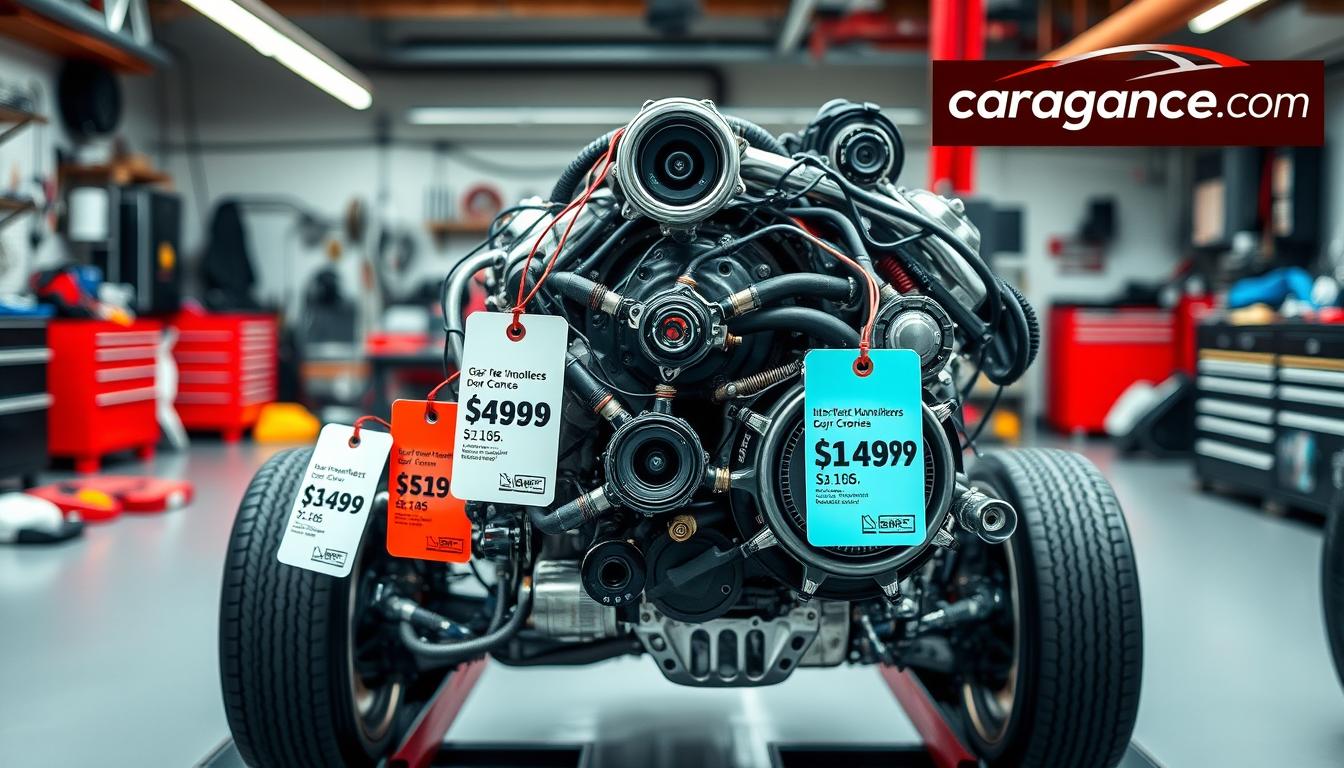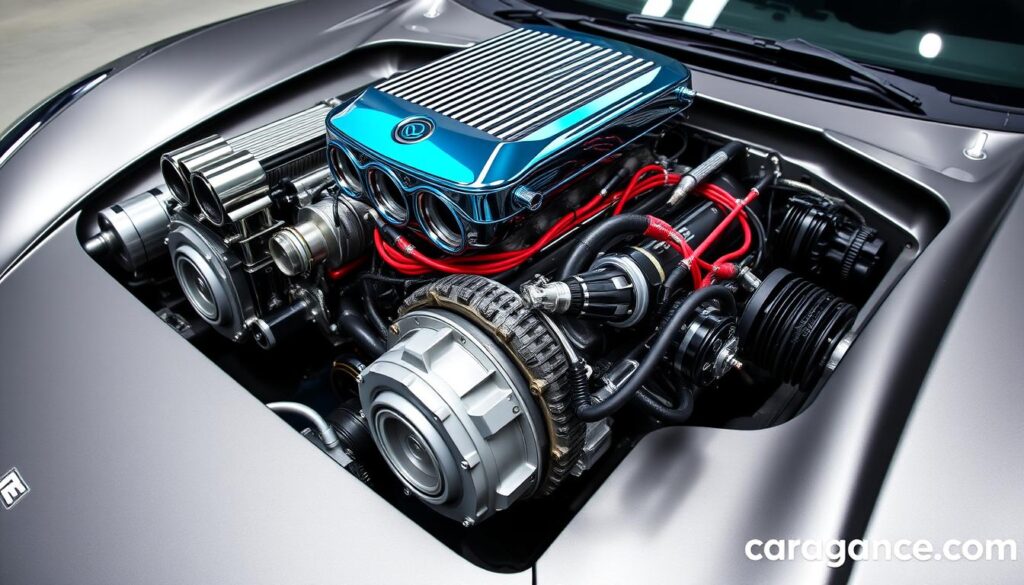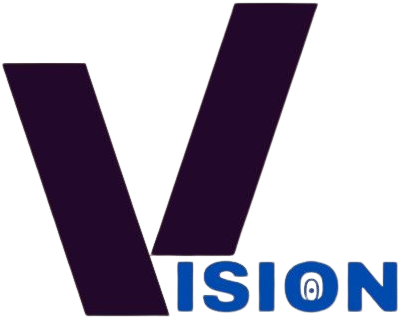
Ever wondered why some aircraft engines cost a lot more than others? Even when they have the same horsepower? The world of modified engines is complex. It involves pricing, sizes, and performance boosts that can confuse even the most experienced buyers.
This guide aims to clear up the confusion around modified engine prices and sizes. We’ll focus on high-performance engines, aftermarket upgrades, and custom engines. As more people want these specialized engines, it’s key to understand what affects prices and sizes. We’re here to help you make the best choice for your needs.
Key Takeaways
- Prices for modified engines are on the rise, though increases are slowing compared to prior years.
- High demand leads to long wait times for new engine orders, highlighting the need for early purchases.
- Popular brands like Rotax, Continental, and Lycoming dominate the market.
- Rebuilding used engines is common, especially given the high costs of new models.
- Liquid-cooled four-stroke engines are becoming preferred over two-stroke alternatives.
- A growing trend involves auto conversions for aviation engines as technology evolves.
Introduction to Modified Engines
Modified engines are key in engine building and improving vehicles and aircraft engines. They help fans reach their performance goals, whether for racing, off-road, or just making their vehicle better. Knowing about modified engines is vital for those wanting to boost power and efficiency.
Understanding engine parts is crucial. Things like fuel injection, carburetors, and ignition systems greatly affect how well an engine performs. Books like “Four Stroke Performance Tuning” by A. Graham Bell are great for learning more. Other good books include “The Racing Engine Builder’s Handbook” and Greg Banish’s works on EFI.
There are many engine types available, each with its own benefits. Single-cylinder engines, like the Yamaha YZ450F, are light and easy to fit. Four-cylinder engines often strike a balance between power and complexity. Knowing these differences helps in making smart modification choices.
It’s also important to think about how reliable and powerful an engine is. The FSAE rules require engines to be 710cc or less. Teams often use modified engines to get the best results. Keeping the engine reliable is a big challenge, influenced by the engine itself, how it’s maintained, and the accessories used.
In short, working on engine building and modifications requires a deep understanding of many factors. Reading up on the subject helps enthusiasts tackle the complexities of modified engines.
Understanding Performance Enhancements
Performance enhancements greatly affect engine performance and how a car drives. By making changes, car owners can boost speed, efficiency, and power. It’s important to know about these enhancements to get the most out of your vehicle.
One key method is increasing the compression ratio. This adds power and improves acceleration. Intake modifications also help, but aftermarket filters might not be as good as factory ones. Changing header designs can also help by reducing weight and improving gas flow.
Camshaft changes are crucial for better airflow. This can significantly improve engine performance. Porting and polishing the cylinder head also boosts power without big engine changes.
For bigger gains, you can increase engine size. However, this changes the engine’s design. Engine management systems like the Cobb Accessport are great for Subaru vehicles. They work well with performance packages that include intake systems and exhaust components.
The following table summarizes key performance enhancements and their potential impacts:
| Performance Enhancement | Description | Impact on Engine Performance |
|---|---|---|
| Compression Ratio Increase | Higher compression allows for more power generation. | Substantial power gains |
| Intake Modifications | Improving airflow into the engine with upgraded components. | Moderate power improvement |
| Header Design Change | Reduces weight and promotes better exhaust gas flow. | Improved torque and power |
| Camshaft Alteration | Changes airflow characteristics to optimize performance. | Significant power increases |
| Porting and Polishing | Enhances airflow through the cylinder head. | Effective power enhancement |
| Engine Displacement Increase | Boosts power by enlarging engine size. | High power outputs but alters factory design |
Innovations like turbochargers and superchargers increase power outputs by boosting pressure and fueling. Upgrades like high-performance throttle bodies and fuel injectors also enhance performance. But, you also need better brakes and suspension to handle the extra power safely and smoothly.
Prices and Sizes of Modified Engines
When looking to buy a modified engine, knowing the prices and sizes is key. Prices change based on many things, like the brand, performance upgrades, and aftermarket parts. Knowing these details helps find the perfect engine for your needs.
Factors Influencing Prices
Several things affect engine prices. Here are the main ones:
- Brand Reputation: Well-known brands usually cost more because of their quality and performance.
- Performance Enhancements: Engines with extra features cost more, showing their better performance.
- Aftermarket Sizes: Bigger engines or those for special uses often have higher prices.
- Supply Chain Issues: Recent problems can lead to longer waits and higher prices.
Sizes Available in the Market
The market offers a wide range of engine sizes for different needs. Engine sizes include:
- 212cc
- 224cc
- 236cc
- 240cc
These sizes help buyers choose the right engine for their vehicles, like mini bikes or racing cars. Knowing about these sizes and price factors helps make better choices.
Types of Modified Engines
Knowing the different types of modified engines helps when buying. Car lovers often pick between high-performance engines and those with aftermarket upgrades or custom builds. Each type meets different needs and tastes, so it’s key to know their special features and benefits.
High-Performance Engines
High-performance engines are made for better power and efficiency. They offer top-notch power, appealing to serious car fans and racers. Brands like Edelbrock offer high-performance engines that boost your car’s power a lot. For example, the Edelbrock / Musi 555 Crate Engine has 723 horsepower and 652 ft-lbs of torque on regular gas.
Aftermarket Upgrades and Custom Engines
Aftermarket upgrades are special tweaks for existing engines. They let drivers fine-tune their engine for their needs. Custom engine builds offer a deeper level of optimization, perfect for street racing or off-road adventures. Upgrades like high-performance cylinder heads and intake systems can greatly enhance engine performance.

| Engine Type | Horsepower | Torque (lb-ft) | Price |
|---|---|---|---|
| Edelbrock / Musi 555 Crate Engine | 723 | 652 | $8,000 |
| Edelbrock / Musi 555 Carbureted Engine | 676 | 649 | $7,500 |
| Edelbrock / Musi 632 Engine | Not Specified | Not Specified | $9,000 |
Choosing the right engine is crucial for a better driving experience. Whether you prefer high-performance engines or aftermarket upgrades, knowing the differences helps find the perfect match for your vehicle.
Choosing the Right Engine for Your Needs
When picking a modified engine, many factors matter, especially for new builds or engine refurbishments. You need to think about performance needs, vehicle or equipment compatibility, and your budget. Knowing these points helps make the right engine choice for any use, from cars to industrial equipment.
Considerations for New Builds
For new builds, focus on matching the engine with your needs. Here are key things to check:
- Engine performance: Pick an engine that meets your performance goals.
- Engine size: Make sure the engine size fits your intended use.
- Crankshaft type and orientation: Choose the right crankshaft for your application.
- Base mounting options: Ensure the engine mounts match your vehicle or equipment.
- Compliance certifications: Look for CARB and EPA certifications for environmental rules.
Honda engines vary for different uses. Commercial Honda engines are built tough for hard work. Knowing the difference between vertical and horizontal engines is key for a successful build.
Refurbishing Existing Engines
When fixing up engines, keeping specs similar to the original is key for safety and performance. Important things to consider include:
- Precision design elements: Look for advanced air intake and camshaft designs to save fuel and reduce noise.
- Engine lifespan enhancements: Features like overhead valves can improve exhaust, cut oil use, and extend life.
- Maintenance and reliability: Check for easy maintenance features like dual-lube systems and oil alerts for steady performance.
When picking, think about what each engine offers. For example, the Blueprint 302 has 235 horsepower, and the 347 version has even more power. Each engine choice affects performance and meets specific needs, making informed decisions crucial.
| Engine Model | Horsepower | Features | Price |
|---|---|---|---|
| Blueprint 302 | 235 HP | Cast iron heads, flat tappet camshaft | $4,500 |
| Blueprint 306 | More than 235 HP | Aluminum heads, roller camshaft | $5,000 |
| Blueprint 347 | More than 306 HP | EFI, Tremec TKO-600 transmission | $6,000 |
Whether for new builds or engine fixes, careful thought leads to the best engine choice. A detailed review helps pick the right engine for performance and reliability.
Cost Breakdown: Upgrades and Modifications
Knowing the cost of modifications is key when boosting your vehicle’s performance. Different types of upgrades impact your budget in various ways. This knowledge helps you manage your budget and plan upgrades wisely.
Types of Upgrades
Most upgrades fall into a few main categories. Here’s a table showing common upgrades and their prices:
| Type of Upgrade | Average Cost |
|---|---|
| ECU Remapping | $300 – $2,000 |
| Dyno Tuning | $200 – $1,000 |
| Spark Plugs (APR Iridium Pro) | Starting at $19.95 |
| Paint Protection Film (PPF) | $2,000 – $7,000 |
| Ceramic Coating | $600 – $3,000 |
| Lowering Springs (Eibach for Ford Mustang) | $350 |
| Coilovers (Eibach for BMW 3 series) | $1,616 |
| Air Suspension (Accuair Kit) | $2,399 |
| Engine Swap | $5,000 – $20,000+ |
| DIY Tasks (e.g., air filter replacement) | Free |
Budgeting for Modifications
Effective budgeting for engines means knowing your financial limits and the costs of upgrades. Keep track of all expenses, including labor costs. Some upgrades might also affect your warranty or insurance.
Before starting upgrades, consider extra costs like local regulations and insurance changes. A complete view of costs ensures a successful and affordable upgrade.
Where to Buy Modified Engines
Looking for the perfect modified engine can be a challenge. You have many places to check, like online stores, local shops, and custom engine builders. It’s important to know where to look to make the right choice.
Retailers and Online Marketplaces
Online stores have a wide range of modified engines for different tastes and budgets. For instance, the GM/Chevrolet section has 315 engines listed. Ford and MOPAR also have a lot to offer, with 60 and 33 engines respectively. This shows there’s a big selection for buyers.
When shopping online, look for engines with clear details. For example, a modified engine in Muncie, IN, costs $12,950. Others in the same area are priced at $17,595 and $21,850. You can also find unique engines, like a 306” super stock engine for $13,000 in Stewartsville, MO. Online shopping makes it easy to compare prices and find various modifications.
Local Engine Builders and Custom Shops
Choosing local engine builders or custom shops can be beneficial. They offer personalized service and know how to meet your specific needs. This ensures your engine is exactly what you want for your performance goals.
Custom engines can cost a lot, though. For example, a hydraulic-cam street cruiser costs $23,975 in Joliet, IL. If you’re looking for something high-performance, there’s a centrifugal supercharger engine for $40,800 or a DART Big M block engine for $28,950 in the same area.
In summary, knowing where to buy modified engines is key. Whether online or from local shops, you can find the perfect engine for your project.
Supply Chain Issues and Market Trends
The modified engine market is facing big supply chain problems. These issues affect how easy it is to find and buy engines. In 2022, the market for specialty car parts hit $51.8 billion, showing people really want high-performance engines.
But, prices for these parts have gone up by 1.8% in Q3 2023. This is less than the 11.1% increase seen the year before. It shows how supply chain problems can cause prices to swing.
Last year, 15.4 million light vehicles were sold, with most being trucks and crossovers. Only about 10% of Detroit Big Three vehicles are traditional cars. This shift means more people want modified engines, making it harder to find them.
Car makers are changing their plans to include more electric and hybrid cars. California wants all new cars to be electric or plug-in hybrids by 2035. This could make finding parts for modified engines even harder.
Many electric car owners don’t buy another EV because of concerns like charging infrastructure. This could affect the demand for modified engines as the market tries to meet consumer needs.
Supply chain leaders think digital changes will speed up because of the pandemic. By 2035, 45% of supply chains will use new tech like AI. This could help solve some of the engine availability problems.
Given these challenges, it’s important to plan ahead when buying modified engines. Knowing the current market trends can help.

| Year | Specialty-Equipment Market Sales | Producer Price Change | Light-Vehicle Units Sold |
|---|---|---|---|
| 2022 | $51.8 billion | 1.8% increase | 15.4 million |
| 2023 | — | 11.1% peak increase | — |
Comparing Performance vs. Cost
When looking at modified engines, it’s key to compare their performance and cost. These engines offer better performance, making driving more fun. But, it’s important to see if the extra cost is worth it.
Value for Your Investment
Buying a modified engine can be a smart move. For example, Class I crate engines give up to 10% more power and torque than stock ones. This means faster acceleration and better response.
Panther Crate engines are a cost-effective choice, offering 300 horsepower. Class II crate engines, though pricier, are designed for serious performance. They get special treatments like align boring and balancing.
Pros and Cons of Modified Engines
It’s crucial to know the good and bad of engine mods. The benefits include:
- Enhanced Power and Torque: Modified engines often have more power, boosting performance.
- Customization: You can adjust mods to fit your driving style and needs.
- Longevity: Quality upgrades, like those from JASPER®, come with warranties and are durable.
But, there are downsides too:
- Increased Maintenance Costs: Mods might need more upkeep, raising long-term costs.
- Reliability Concerns: Improper installation or calibration can cause reliability issues.
- Fuel Efficiency: Power upgrades often mean worse fuel economy.
This balanced view helps buyers understand the value of engine mods. It shows the potential benefits and risks, helping make an informed choice.
Regulations and Compliance for Modified Engines
Knowing the rules for modified engines is key for those looking to boost performance legally. There are regulations for modified engines to keep vehicles safe and eco-friendly. These rules can be tricky, especially when changes affect how a car runs or its emissions. Staying up-to-date with emission standards for engines helps in making smart choices for modifications.
Understanding Emission Standards
Emission standards are a big deal for vehicle rules. For example, cars under 4,500 pounds can’t have frames over 27 inches high. As the car’s weight goes up, so does the frame height limit. Knowing these limits is vital for anyone planning to modify their vehicle.
| GVWR Category | Max Frame Height |
|---|---|
| Less than 4,500 lbs | 27 inches |
| 4,501 – 7,500 lbs | 30 inches |
| 7,501 – 10,000 lbs | 31 inches |
In California, cars must pass a Smog Check to meet strict emissions rules. Also, there are specific rules for modifications, like how much light windows can block and how many fog lamps can be used.
For old cars, California needs a special form to register them after changes. Cars modified to meet California’s emissions rules need special tests and certifications. This shows how complex it can be to follow the rules for modifications.
Modifiers must make sure changes don’t make the car hard to drive. Not following these regulations for modified engines can lead to fines or legal issues.
Conclusion
Choosing a modified engine is complex but crucial. This guide has covered various engine types, from high-performance to custom upgrades. These upgrades can boost efficiency and power.
It’s key to know the details, like diesel engine compression ratios and big block Chevy engine history. This knowledge helps buyers make smart choices.
When buying an engine, think about price, size, and regulations. It’s important to match your performance goals with your budget. This way, you get the best value without spending too much.
With this guide, you’re ready to explore modified engines. By doing your homework, you’ll find an engine that improves your vehicle’s performance. It will also meet all necessary standards, ensuring reliability and power.
FAQ
What are the typical prices for modified engines?
Prices for modified engines vary a lot. This depends on size, type, and extra features. Brand, performance boosts, and aftermarket parts also affect the cost.
What type of performance enhancements can be made to an engine?
You can make many changes to boost an engine’s performance. These include tuning, adding turbochargers or superchargers, and upgrading systems. You can also use aftermarket parts. Each change can improve horsepower, torque, and fuel use.
How do I choose the right modified engine for my vehicle?
Choosing the right engine means looking at a few things. Check if it fits your vehicle or aircraft, what performance you want, and your budget. Make sure the engine meets your needs and goals.
Where can I buy modified engines?
You can find modified engines from several places. These include reliable stores, online sites, and local builders. Each has its own benefits and drawbacks. It’s smart to research and pick the best option for you.
What challenges are currently affecting the modified engine market?
The market is dealing with supply chain problems. This makes engines harder to find and prices go up. There’s also a big demand for high-performance engines, making things even tougher.
What are the potential pros and cons of investing in modified engines?
Modified engines can make your vehicle run better and feel more satisfying to drive. But, they might cost more to maintain and could be less reliable. It’s important to weigh these points carefully.
Are there regulations I need to be aware of when purchasing modified engines?
Yes, knowing the rules is key, especially about emissions. Make sure any changes you make are legal. This keeps your engine compliant with laws for driving or flying.








